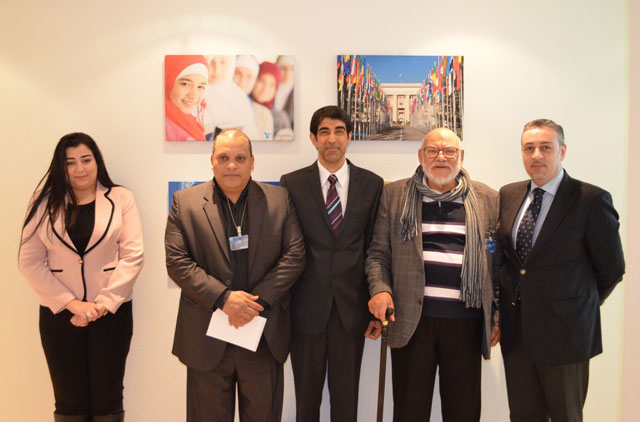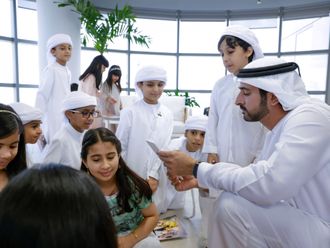Geneva: Extremism represents a significant threat to human rights, and an obstacle to freedom of speech, association and religion, said the top Emirati official at the helm of the Geneva Centre for Human Rights Advancement and Global Dialogue (GCHRAGD).
Dr Hanif Hassan, Chairman of the Geneva Centre, made this point when he met Marianna Kamal, a member of the Egyptian National Council of Human Rights, Dr Ahmed Al Fadaly, President of the Egyptian Independence Movement, and Dr Kamal Helbawy, a writer, activist, and member of the Egyptian National Council for Human Rights.
Dr Hanif, former Minister of Health of the UAE, was appointed director and chairman of the board of the GCHRAGD, an independent, non-governmental, non-profit organisation based in Switzerland concerned with promoting human rights through dialogue.
The centre recently published a report “Egypt: Democracy in Transition” on the occasion of the 25th Session of the United Nations Human Rights Council as part of discussions on the opportunities and challenges facing Egypt on its roadmap to democracy and provide a space where its people's aspirations can be voiced.
Threats, solutions
Dr Hanif reflected on the importance of inter-cultural dialogue, cooperation, and mutual respect as tools for promoting and protecting human rights.
The delegation then discussed the need for a conference to identify various forms of political Islam and discuss how states can deal with the issue in light in increasing sectarianism and extremist violence.
Dr. Hanif underlined that political Islam and extremism in many cases represent a significant threat to the enjoyment of human rights, and an obstacle to freedom of speech, association, and religion.
The chairman also highlighted the need to adapt educational curricula and religious teaching in the Middle East to raise awareness of the dangers of radical Islam, and to protect young people from susceptibility to its influence.
He added that governments, academic institutions, civil society representatives and the private sector should unite to develop the capacity of local communities to resist extremism and embrace intercultural dialogue.
Dr. Al Fadaly stressed on the importance of preventative measures to limit extremism, and Dr Helbawy encapsulated the position of the Geneva Centre and its objectives in this regard by emphasising that “it is imperative to reject dictatorship and fascism in the name of Islam”.













